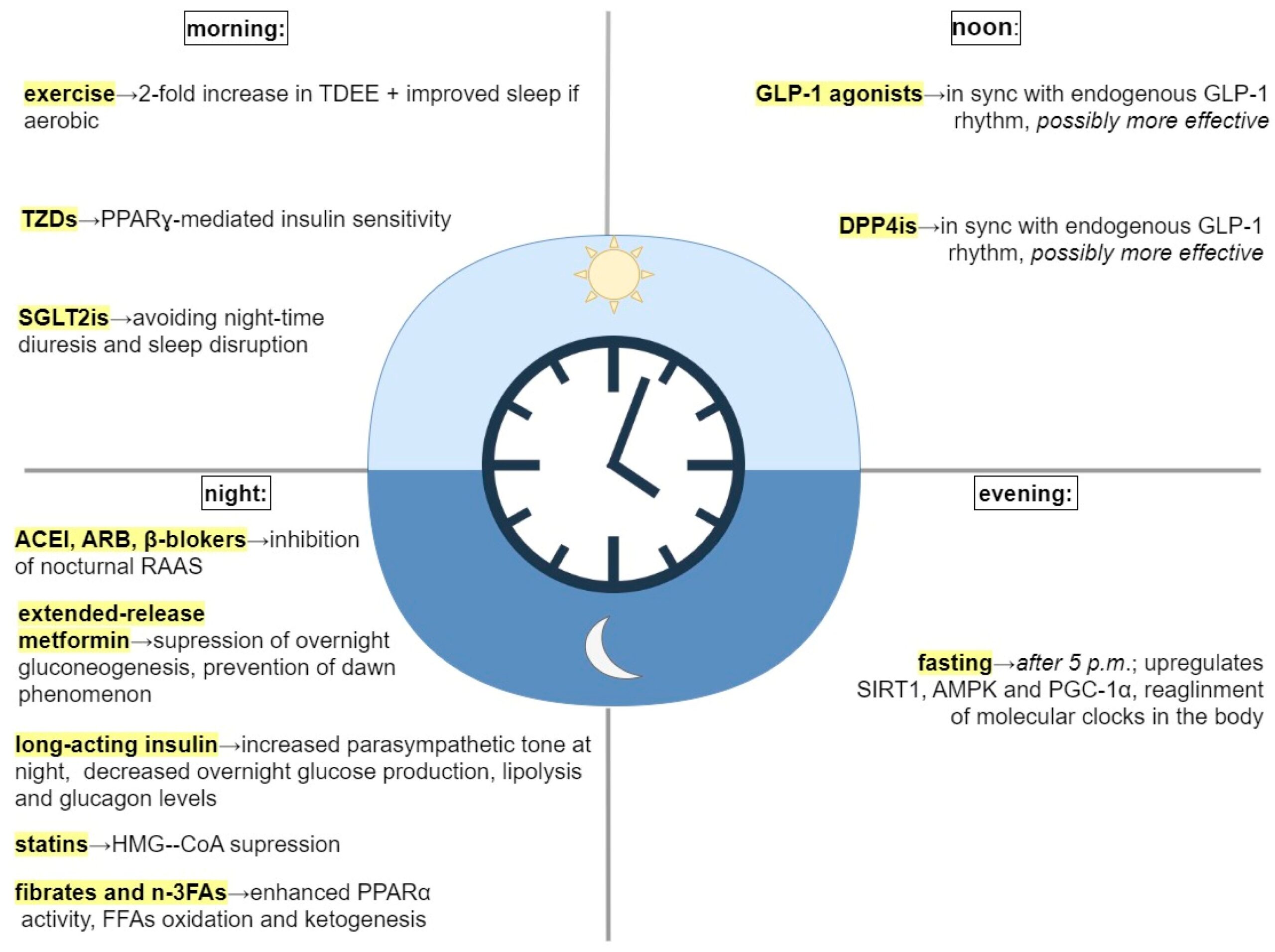We have internal rhythms that align with the rotation of the planet. Most famously, there is the rhythmic secretion of melatonin at night and a spike of cortisol in the morning. These and myriad other oscillations are controlled by aptly named clock genes that are present in every cell of the body. Clock genes work together to maintain and synchronize the timing of various physiological and behavioral processes in the human body. Some of the key clock genes are CLOCK, BMAL1, PER, and CRY. The molecular clock in individual cells is synchronized by a master oscillator located in the suprachiasmatic nucleus (SCN) of the hypothalamus. The SCN receives light signals from the retina, which helps to align the internal clock with the external light-dark cycle, ensuring that the circadian rhythm is properly entrained to the external environment. Circadian dysfunction that occurs when peripheral clocks are out of sync with the central clock, as during jet lag or shift work, can lead to metabolic dysfunction. The function of the clock genes and the mechanisms of circadian rhythmicity have been elucidated to fascinating detail–though their translation to clinical medicine has not happened. But according to this Montenegrin paper, circadian timing can be easily applied for interventions related to metabolic health.
Certainly the most obvious and best studied of the circadian recommendations is to align sleep with the day and night cycles. Following that, eating while the sun is out is a good rule of thumb, we know that eating outside a circadian window affects how we use our calories and increases the likelihood of metabolic dysfunction. Like many who practice obesity medicine, I suggest front loading calories earlier in the day.
Exercise in the morning–I’ve read different perspectives, but the paper makes a good case for timing exercise early. They point out that melatonin phase delays are associated with exercise in the evening or overnight.
Antihypertensives: ACE inhibitors and ARB’s should be taken in the evening–I didn’t know this.
Statins: Should also be taken at night. Good to know. Put it on your nightstand.
Metformin: take it at night
Breakfast: Is it the most important meal of the day or should you skip breakfast to prolong your fast? It appears that calories eaten for breakfast are less fattening, account for more energy expenditure and may reinforce important clock genes. Which is to say, eat your breakfast.
GLP-1 RA’s in the afternoon to sync with endogenous GLP-1 secretion–probably less relevant since people take once weekly dosing.

